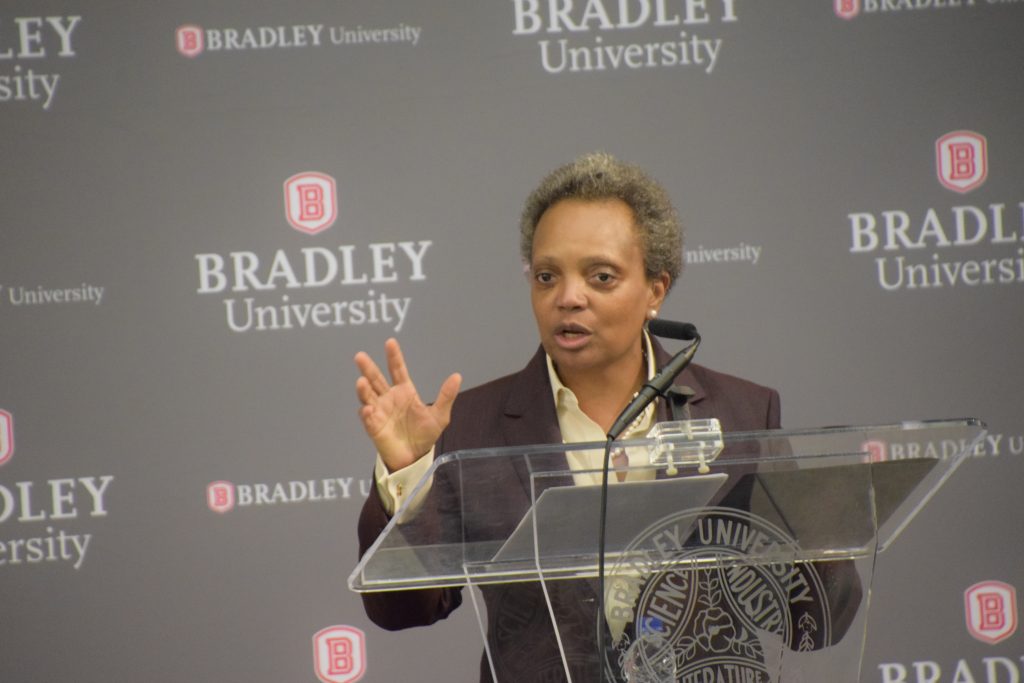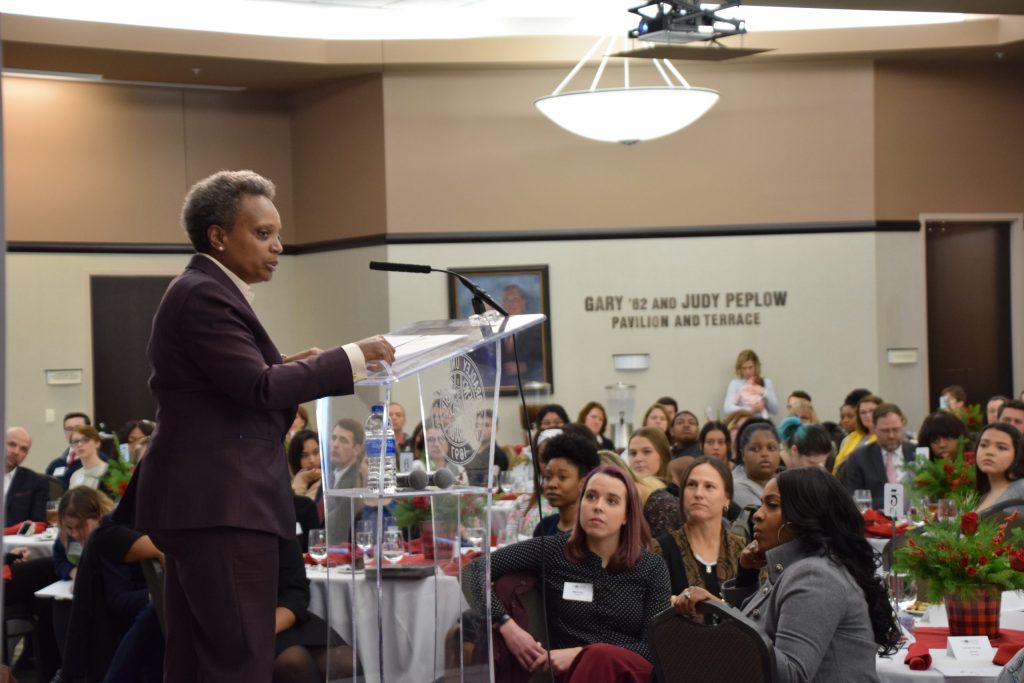
“We need to break open the door and take a seat at the table.” Chicago mayor, Lori Lightfoot said.
Lightfoot is the first African American female and first openly gay person to be elected mayor of the City of Chicago. She spoke on “Leading Chicago with Integrity, Equity and Inclusion” to a packed audience at the Women in Leadership Luncheon in the Hayden-Clark Alumni Center on Wednesday.
Lightfoot discussed how women face gender discrimination issue across all industries and professions today, and referenced her own experience being denied by a prospective client whose company suggested Lightfoot represent him.
“After meeting with my potential client, I didn’t get the job,” Lightfoot said. “One of the women at the company reached out to me and told me, with much embarrassment, that he ‘just didn’t feel comfortable with me and wanted someone who looked like him.’”
Despite situations like these, Lightfoot emphasized the need for more women in positions of power.
“When women are absent from leadership roles, our voices remain unheard and our perspective left unseen from the decisions and how we as a society develop issues across healthcare, safety regulations, urban planning and more,” Lightfoot said.

Senior advertising major Sam Kestler is from the Chicago area, and said he believes electing her this past November was the right choice for the city.
“[Lightfoot’s] can-do attitude and passion for ethics and accountability is admirable and I think she’s going to continue to do amazing things for the city of Chicago,” Kestler said.
A member of the speech team, senior health education major Cassie Edmunds, also took the stage to perform Tony Morrison’s “Beloved,” a narrative struggle from the perspective of a female slave.
Through this performance, Edmunds said she wanted to address the experiences of an even further underrepresented group within women: black women. In her performance, she referred to black history as a “residue” that lingers.
“That residue, it influences me today,” Edmunds said. “It influences hundreds and hundreds of black women across the country so I wanted people to be aware of that and even change the way they go about talking about individuals of color and acknowledging rather than invalidating.”
In her speech, Lightfoot recognized Bradley University founder Lydia Moss Bradley for defying “role expectations for women in her society.”
“As distant as 1896 may seem, it’s not as distant as it should be,” Lightfoot said. “While the fight for gender discrimmination continues to make transformative gains, women still face the reality of being women in male-dominated institutions, institutions made by men for men.”




